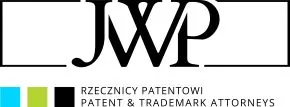- within Intellectual Property topic(s)
- in United States
- with readers working within the Banking & Credit industries
In recent years, the global dietary supplement sector has experienced intense and systematic growth, the main factor of which is the growing pro-health awareness of consumers and their desire to comprehensively care for their well-being. Preparations such as multivitamins, macrominerals and micro-minerals, natural plant extracts have become an integral part of society's lifestyle.
The popularity of dietary supplements is constantly growing, but it is worth understanding why this happens, what is behind the dynamic development of this industry and the intensification of the use of supplements by the society. The aging population, looking for solutions to maintain vitality and physical and mental fitness, has a particularly important impact on the growth of the supplement market. Today's lifestyle – fast, full of pressure and responsibilities, based on processed foods equipped with a number of flavour enhancers, preservatives – means that many of us do not provide the body with enough of the necessary ingredients.
The market for dietary supplements is an area with great potential for development, but functioning within it also involves a number of important challenges. Companies active in this industry are obliged to constantly balance between consumer expectations and growing market competition.
Growing consumer awareness
In recent years, a considerable increase in interest in health, prevention and lifestyle based on conscious dietary choices has been observed. Consumers are increasingly looking for supplements with documented efficacy (as part of available qualitative, observational or bioavailability studies that differ from clinical drug studies), safe composition and clear origin of raw materials. Perhaps this will be a reliable argument for manufacturers supporting conscientious, fact-based communication, in which both mechanisms of action and real benefits and potential restrictions on the use of supplements are presented. Education in this context would seem to be a strategic tool for building brand loyalty and trust.
Increased competition – pressure for innovation
The dietary supplement market today is extremely competitive and saturated with products of varying quality and, consequently, effectiveness. In order to stay at the forefront, it is worth investing in research, technology development and the introduction of innovative compositions that meet the current needs of consumers. The company can gain market advantage by combining a unique value proposition with high quality standards and an ethical approach to business.
Regulatory environment – the need for changes
The dietary supplement sector, despite its dynamic growth, is still not subject to detailed and uniform legal regulations that would comprehensively guarantee consumer health safety and high quality of products – unlike the pharmaceutical sector. Although the market is regulated, among others, by Directive 2002/46/EC and the provisions on health claims, these standards are significantly less restrictive than in the pharmaceutical sector, which raises questions about the need to tighten them. The current legal status leaves producers a lot of freedom in terms of marketing declarations, quality of ingredients or production processes, which in the long run may pose a risk to consumer confidence. The introduction of precise standards, modelled or similar to those used in the pharmaceutical sector, could become an important step towards transparency, accountability and fair competition.
Quality and bioavailability – the foundation of market advantage
The key success factor in the industry could be not only the purity and safety of supplements, but above all their bioavailability. Highly bioavailable products, backed by research and constant quality control, are more likely to gain long-term consumer recognition, although the scope of research and standards of evidence are different from those of medicinal products. Quality care should cover every stage – from the selection of raw materials, through the production process, to the final parameters of the product. This requires not only advanced technologies, but also a responsible approach to the entire value chain.
Modern methods of manufacturing dietary supplements
Modern technological possibilities such as micro- and nano-encapsulation, freeze-drying or advanced forms of extraction or developing 3D printing technology can definitely facilitate the production of dietary supplements with high bioavailability and effectiveness. The use of these modern methods in the production of supplements could increase the quality of a dietary supplement, but also create space for unique technological solutions. However, innovative technology alone does not guarantee a competitive advantage unless it is properly protected. In this context, patent protection, which allows a company to retain exclusivity for the use of unique solutions, and thus protects them from being copied by competitors, becomes crucial. Properly protected inventions not only strengthen the strategic market position of the company, but also constitute an important component of its value, increasing attractiveness in the eyes of investors and opening opportunities for monetization of innovation through licensing or sale of rights.
In the dietary supplement sector, obtaining patent protection may be of significant importance both at the level of the compositions (compositions) themselves and the methods of their production. Patents constitute an effective barrier against unfair competition, allowing to secure investments related to the development of new formulations or technological processes.
The benefits of patent protection
Market exclusivity – protection against duplication of unique products or methods of obtaining these products
Obtaining the right from the patent gives the company the right to exclusively use the patented solution for 20 years from the date of filing the application. With a patent in place, a company gains exclusive rights to market its innovations – keeping competitors at bay and maximizing the value of its research. In the dietary supplements sector, obtaining market exclusivity can enable a real advantage and secure the effect of creative invention.
Commercialization of innovations – licensing patented solutions possibility or selling patent rights
Patent law is an asset that can be profitable even unless the owner carries out independent, active production. It is possible to grant a license to other entities in exchange for license fees or the sale of the patent as a whole right. Non-exclusive licenses give you the opportunity to scale your business without having to invest in your own generation capacity, and can also serve as an element of strategic cooperation with larger market partners.
Securing investments – intellectual property may prove important when acquiring investors
For external investors, having patent applications or patent rights is proof that a company has a unique, difficult to counterfeit resource. Patents add value to an enterprise because they protect its key technologies or products from competitor activity. Moreover, a well-designed patent portfolio may be an argument determining the investment decision or the terms of cooperation.
Increase in prestige – confirmation of the innovativeness and credibility of the company
A patent can not only protect a product or technology, but also signal to the market environment that the company invests in research and development and introduces innovative solutions to the market. For customers, business partners and consumers, this can be an important signal of the manufacturer's professionalism and transparency.
Legal protection – pursuing claims possibility against patent infringements
Obtaining a patent provides the basis for enforcing rights against entities that use protected solutions in an unauthorized manner. In the event of an infringement, the patent infringer may be required to cease the infringement, release unfair profits, and in the event of a culpable infringement, also to repair the damage caused and order the product to be withdrawn from the market. This is particularly important in fast-growing industries, where the risk of unauthorized activities from competitors is high.
'Patent forest'
A single patent often turns out to be insufficient to ensure effective protection of innovation. In the face of increasing competition, it is particularly useful to implement a multi-faceted patent strategy.
In the case of developing an innovative product – such as a new dietary supplement composition or technology of its production – it is important not only to secure the solution itself, but also to anticipate potential alternative variants that could be used by competitors to circumvent the basic patent.
For this reason, companies with a strategic approach build the so-called patent barrier – a set of interrelated patent applications that create a coherent structure for intellectual property protection. For example, when developing an innovative supplement recipe and the corresponding production technology, the company did not limit itself to one application. Instead, a comprehensive patent portfolio has been developed, comprising:
- basic formulation of the composition along with its numerous variants and modifications,
- methods of manufacturing the final product and processing semi-finished products,
- declared by manufacturers preventive uses (in accordance with applicable regulations, supplements cannot be presented as medicinal products, only nutrition and health claims in accordance with EFSA regulations are allowed).
Thanks to this approach, each attempt to circumvent encounters another one – which makes it much more difficult for competitors to enter the market with a similar solution.
The use of this strategy in an effective way could be based on three key pillars:
Applications filed across multiple jurisdictions – covering key markets: both production and distribution sites and areas of activity of potential competitors, enabling effective enforcement at a global level.
Complementary applications – taking into account different versions of the product, alternative active ingredients, as well as production, purification or process optimization methods.
Staggered applications – allowing for a flexible response to changing market conditions and a gradual extension of the protection period through the development of new patent applications.
The patent protection model constructed in this way is not accidental – it is the result of conscious, long-term planning, the aim of which is to maximize the protection of intellectual value and create a real competitive advantage on the market of dietary supplements.
To sum up, patent protection in the dietary supplement sector allows for effective protection of both innovative compositions, products and innovative methods of their production. Patents not only protect innovative solutions from competition, but also support commercialization and increase the market value of the enterprise.
The content of this article is intended to provide a general guide to the subject matter. Specialist advice should be sought about your specific circumstances.


